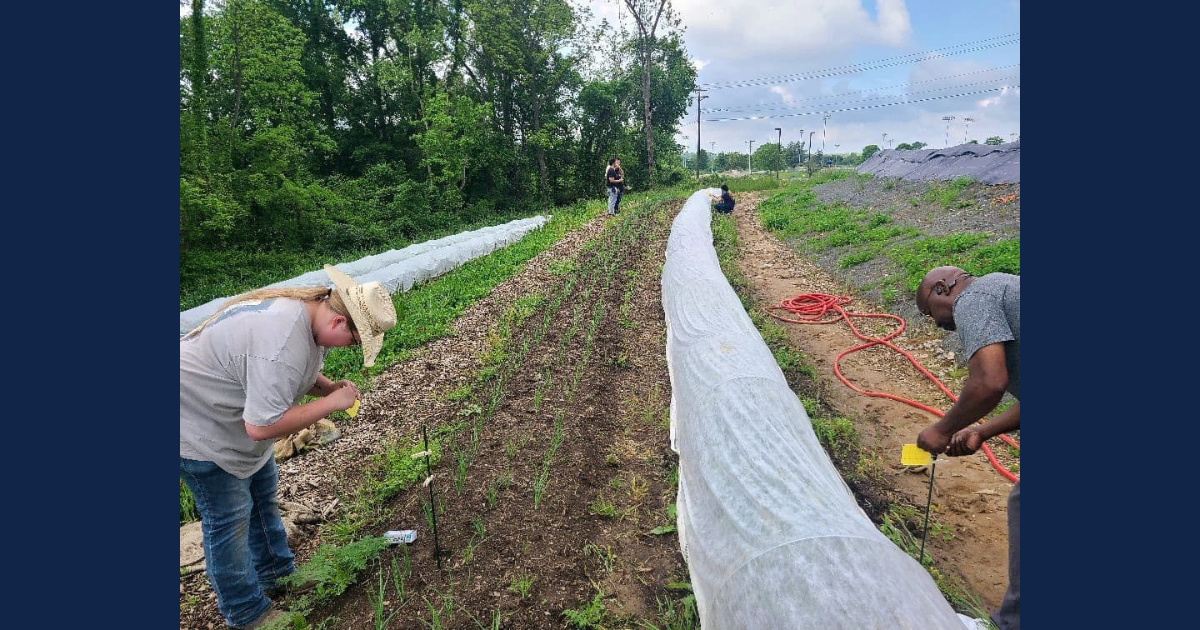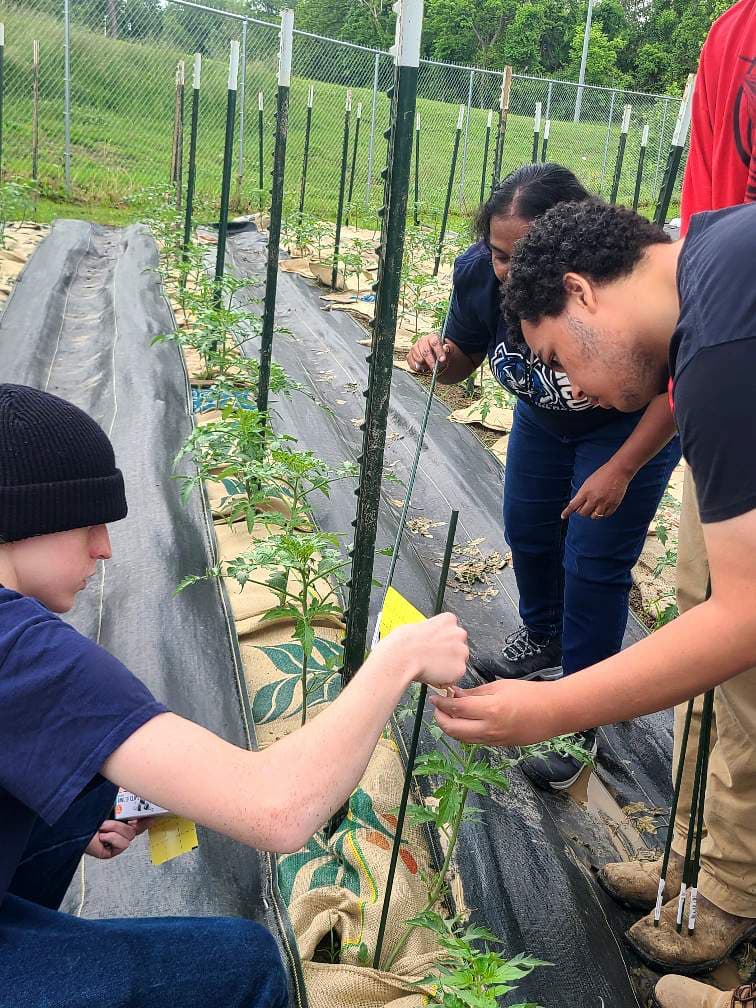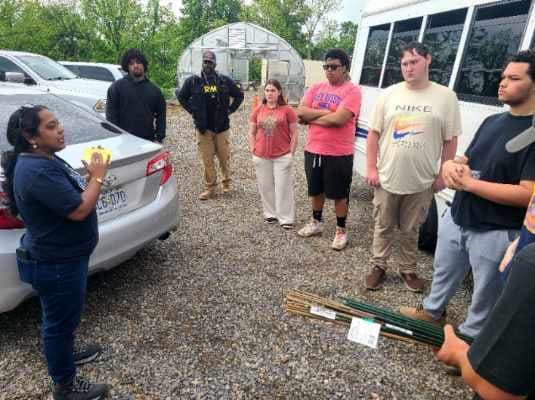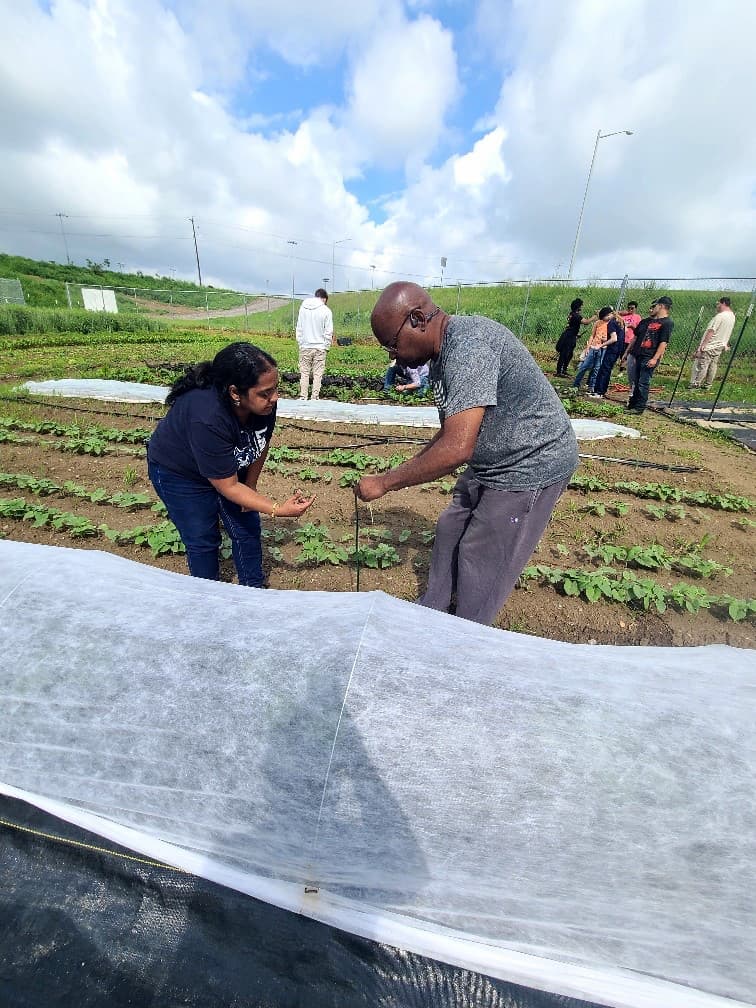Lincoln University of Missouri Brings Pest Solutions and Student Learning to Southeast Missouri
Office of Communications and Marketing
Young Hall
820 Chestnut Street
Jefferson City, MO 65101
 Students and farmers team up to deploy sticky traps during Lincoln University’s IPM field visit in Cape Girardeau.
Students and farmers team up to deploy sticky traps during Lincoln University’s IPM field visit in Cape Girardeau.
When pests threaten crops, timely support can make all the difference. Reports of crop damage from Southeast Missouri farmers sparked a coordinated response that brought science, sustainability and education into the field.
Lincoln University Cooperative Extension (LUCE)’s Integrated Pest Management (IPM) program, led by State Extension Specialist and Assistant Professor Dr. Anitha Chitturi, responded by conducting on-site assessments and providing science-based recommendations to help farmers manage pests in Poplar Bluff, Cape Girardeau and New Madrid areas.
“This kind of hands-on outreach highlights the mission of Lincoln University’s IPM program — to serve growers through practical, research-based pest solutions and offering timely support,” says Dr. Chitturi. “By combining field visits with education, we’re reinforcing long-term, sustainable practices.”
 Dr. Anitha Chitturi guides students through the hands-on process of setting yellow sticky traps to track pest populations in vegetable crops.
Dr. Anitha Chitturi guides students through the hands-on process of setting yellow sticky traps to track pest populations in vegetable crops.
Before Dr. Chitturi arrived in Southeast Missouri, South Side Farms — a nonprofit farm in Cape Girardeau — agreed to host an on-site field visit specifically highlighting the use of yellow sticky traps, an effective IPM tool for monitoring a broad range of crop pests. The collaboration builds on last year’s successful partnership, when LU’s IPM program helped the farm manage a major pest outbreak. This season, Lincoln continues to provide weekly on-farm support through monitoring, data collection and crop-specific pest management.
Wanting to expand the impact of Lincoln’s trip, South Side Farms Executive Director Maurice Theriot reached out to Michael J. Johnson, horticulture instructor at Cape Girardeau Career and Technology Center, to invite him and his students, along with farmers, to join the field day.
“We have worked with South Side Farms for over two years,” Johnson says. “When they contacted me to see if I’d be interested in bringing students over, I saw it as a great opportunity. It’s important for them to get hands-on experience while participating in their community.”
Thirteen high school students from the Landscape Horticulture Program at the Cape Girardeau Career and Technical Center participated in the pest management field experience, applying classroom knowledge in a real farm environment.
 Before heading into the field, Dr. Chitturi explains how yellow sticky traps help identify pest pressure in crops.
Before heading into the field, Dr. Chitturi explains how yellow sticky traps help identify pest pressure in crops.
The outreach included South Side Farms and other regional farmers who were facing pest management issues.
Dr. Chitturi assessed insect damage on vegetable crops that included tomatoes, collards, squash and beans. She guided students through pest scouting techniques and helped them identify common insects —such as aphids, flea beetles and cucumber beetles — while explaining how these pests impact crop quality.
“I wanted students to get a chance to see something different than what they’re used to. Dr. Chitturi brought yellow sticky traps and showed students how to set them in the field. That really helped the participants understand, with hands-on experience, what’s available to them to combat early pest pressure on a farm.” Theriot said. “It’s important that youth see agriculture as more than just hard labor. There’s science. There’s business. There’s opportunity.”
By the end of the on-farm field day, students installed yellow sticky traps across the 7 acres that make up South Side Farms. Under Dr. Chitturi’s guidance, they learned how to select trap locations, properly deploy them and interpret what the observed or identified insects revealed about the pest pressure on the farm.
 A local farmer learns trap placement techniques from Dr. Chitturi as part of Lincoln University’s ongoing pest management outreach.
A local farmer learns trap placement techniques from Dr. Chitturi as part of Lincoln University’s ongoing pest management outreach.
“It helps us to reinforce the teaching lessons we’re instructing the students with,” Johnson says. “We like collaborating with Lincoln and South Side Farms because they’re coming with all their past experience and education, and we want the students to learn as much as possible — and maybe even catch the bug of starting their own farm or business.”
The Southeast Missouri field day offered students a firsthand look at how science, problem-solving and sustainability intersect in real-world agriculture. While local farmers received timely, research-based pest management support, students explored new career possibilities and gained a deeper understanding of integrated pest management in action. The experience exemplified Lincoln University of Missouri’s commitment to education and community service — bringing together outreach, research and youth engagement to support the future of agriculture in the state.
For more information on Lincoln University’s IPM Program, please contact Dr. Anitha Chitturi at ChitturiA@lincolnu.edu.
